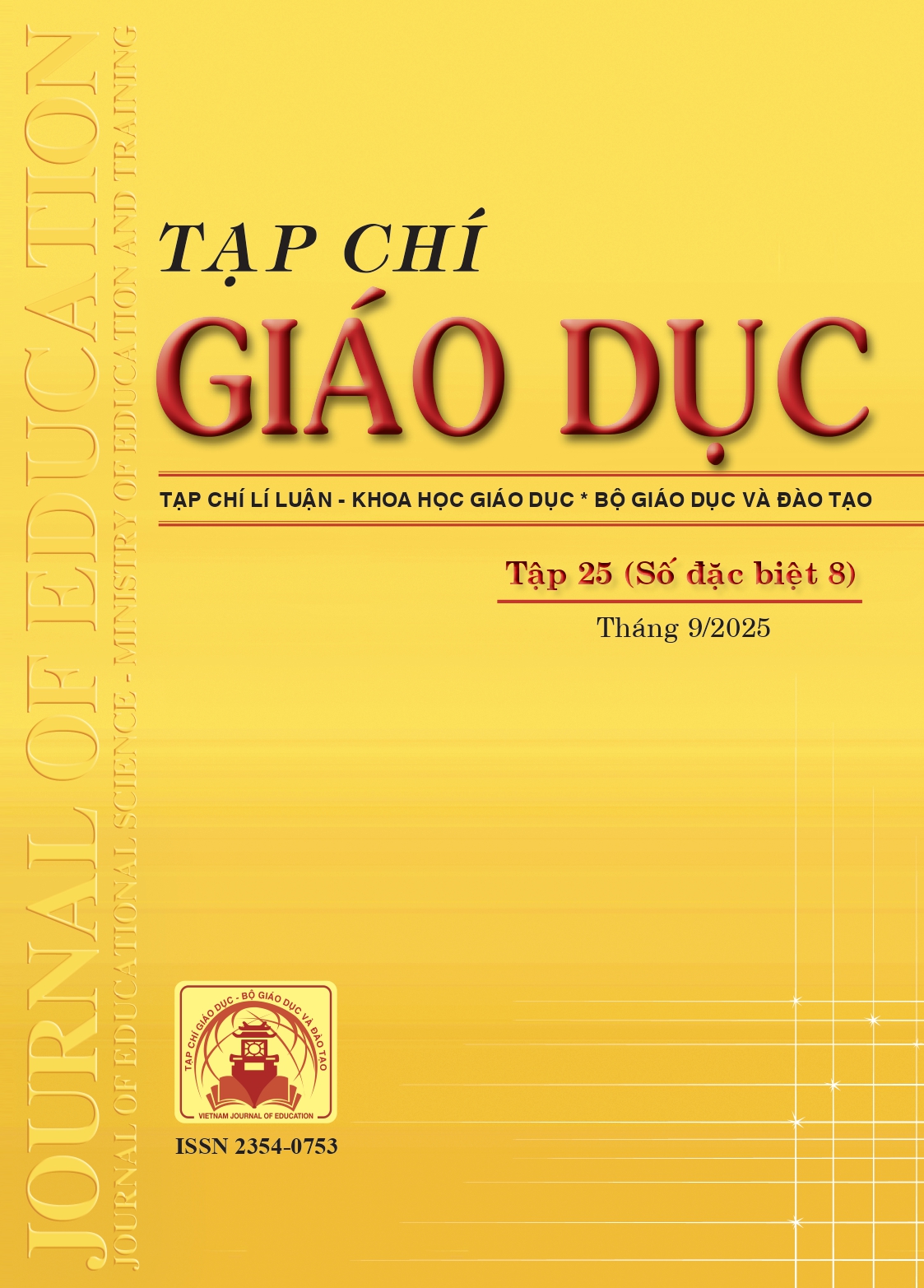Vận dụng mô hình lớp học đảo ngược kết hợp mô hình 5E trong dạy học bài “Khái niệm văn minh. Một số nền văn minh phương Đông thời cổ - trung đại” (Lịch sử 10)
Tóm tắt
In the context of fundamental and comprehensive innovation in general education and the requirement to utilize digital technology to improve teaching effectiveness, the study of the flipped classroom model combined with the 5E model for History has become necessary to meet the goal of developing students' capacity and qualities. With the aim of specifying the implementation steps in the learning stages of the flipped classroom model, this article focuses on clarifying the application of the 5E model in the flipped classroom model in teaching History through theoretical research methods, thereby building a specific process to combine the steps of initiation, discovery, explanation, consolidation/application, and evaluation with specific activities in the learning stages outside the classroom and in the classroom of the flipped classroom model to guide the process of organizing history teaching in order to improve the effectiveness of History lessons in high schools. The research results suggest a feasible approach in designing History lessons in an integrated direction.
Tài liệu tham khảo
Bybee, R. W., Taylor, J. A., Gardner, A., Van Scotter, P., Powell, J. C., Westbrook, A., & Landes, N. (2006). The BSCS 5E instructional model: Origins and effectiveness. Colorado Springs, Co: BSCS, 5(88-98).
Lê Nguyễn Vân An (2023). Áp dụng mô hình “Lớp học đảo ngược” trong dạy học môn Giáo dục kinh tế và pháp luật 11 (phần Pháp luật) nhằm phát triển năng lực giải quyết vấn đề và sáng tạo của học sinh. TNU Journal of Science and Technology, 229(04), 322-330.
Li, B., & Peng, M. (2022). Integration of an AI‐based platform and flipped classroom instructional model. Scientific Programming, 1, 2536382. https://doi.org/10.1155/2022/2536382
Lo, C. K. (2017). Toward a flipped classroom instructional model for history education: A call for research. International Journal of Culture and History, 3(1), 36-43. https://doi.org/10.18178/ijch.2017.3.1.075
Mehring, J. (2016). Present research on the flipped classroom and potential tools for the EFL classroom. Computers in the Schools, 33(1), 1-10. 10.1080/07380569.2016.1139912
Nguyễn Thành Hải (2019). Giáo dục STEM/STEAM: Từ trải nghiệm thực hành đến tư duy sáng tạo. NXB Trẻ.
Nguyễn Thị Kim Thoa, Hồ Thị Minh Trang (2017). Vận dụng mô hình Lớp học đảo ngược trong dạy học môn Toán lớp 4. Tạp chí Khoa học Trường Đại học Sư phạm - Đại học Đà Nẵng, 24(03), 93-98.
Phạm Thị Thu Trang, Phạm Viết Ngọc (2022). Áp dụng mô hình Lớp học đảo ngược vào dạy học trực tuyến cho sinh viên Trường Ngoại ngữ - Đại học Thái Nguyên. Tạp chí Giáo dục, 22(6), 47-52.
Schallert, S., Lavicza, Z., & Vandervieren, E. (2022). Merging flipped classroom approaches with the 5E inquiry model: a design heuristic. International Journal of Mathematical Education in Science and Technology, 53(6), 1528-1545. https://doi.org/10.1080/0020739X.2020.1831092
Trần Thị Lợi (2024). Vận dụng mô hình Lớp học đảo ngược kết hợp mô hình 5E trong dạy học môn Toán lớp 4 theo định hướng phát triển năng lực. Tạp chí Thiết bị Giáo dục, 2(325), 166-168.
Turan, S., & Matteson, S. M. (2021). Middle school mathematics classrooms practice based on 5E instructional model. International Journal of Education in Mathematics, Science, and Technology, 9(1), 22-39.
Đã Xuất bản
Cách trích dẫn
Số
Chuyên mục
Giấy phép

Tác phẩm này được cấp phép theo Ghi nhận tác giả của Creative Commons Giấy phép quốc tế 4.0 .












